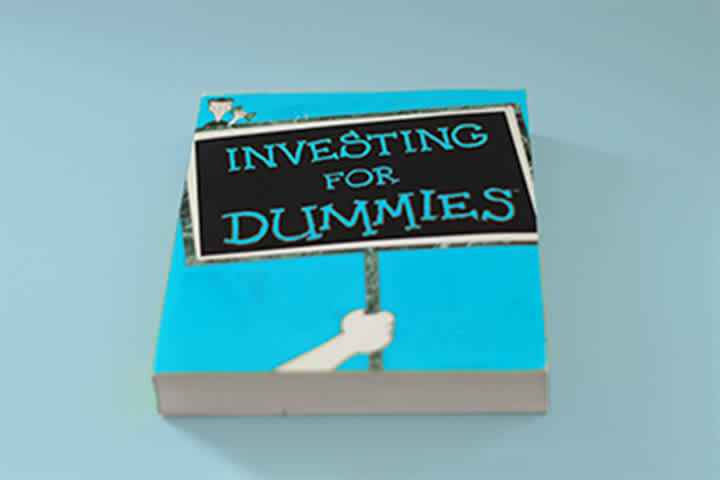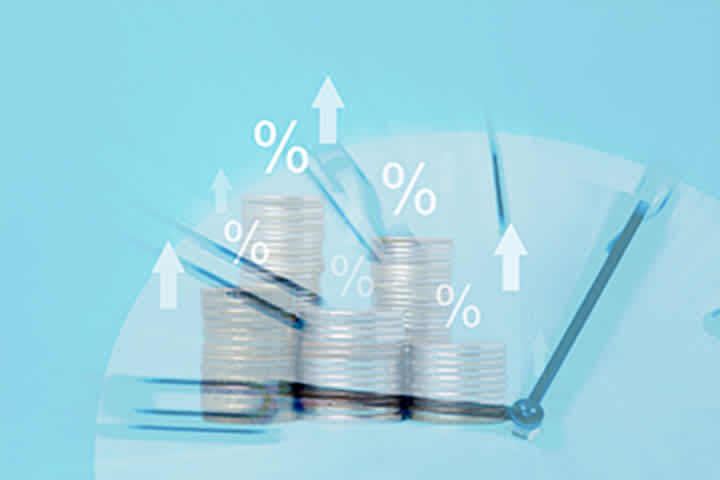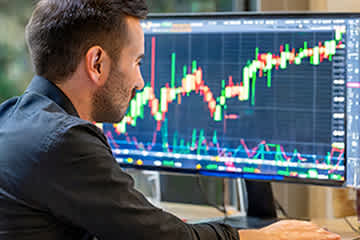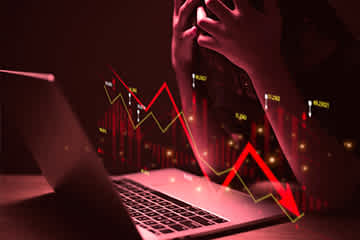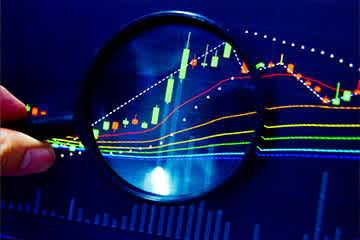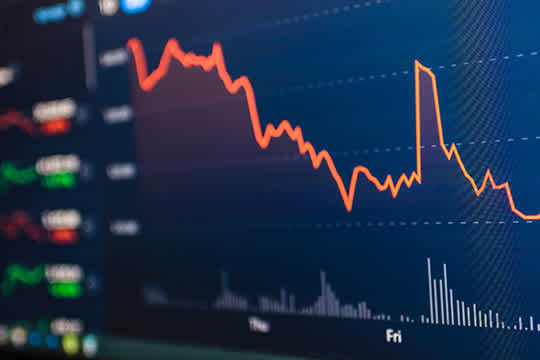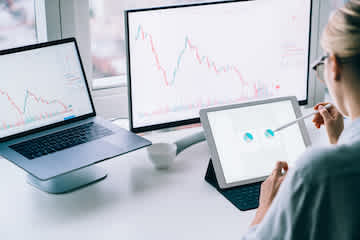Will the MSCI Emerging Markets index become the next big thing?

Geert Van Herck
Chief Strategist KEYPRIVATE
August 24, 2020
4 minutes to read
Investors who have an overexposure to US shares in their portfolio have not been complaining in recent years. The US stock market has proved to be the top star performer by some way. It has outperformed the European stock markets and those of emerging countries such as China and India. This is primarily due to the technology sector!
Will the party continue? Or are we about to witness a changing of the guard? A brief analysis by Geert Van Herck, Chief Strategist at Keyprivate.
“The US stock market has easily outperformed the stock markets of Europe and of emerging countries such as China, India, South Africa, South Korea and Russia in recent years. This strong performance by the US was delivered by technology companies such as Apple, Amazon, Microsoft, Facebook, Google and Netflix. Many stock market analysts are increasingly wondering whether the US can continue this over the next five to ten years.
The flip side of the coin is the fact that the US stock market's success has made it expensive according to many well-known valuation ratios. Table 1 shows five common valuation ratios for the S&P 500 compared to the MSCI Emerging Markets. More and more stock market analysts are seeing potential in these emerging countries. Their modest performance over the past few years makes them seem cheap. However, valuation is and remains an important criterion for projected returns. The cheaper they are, the higher the expected returns from investments in different economic regions. On the other hand, the more expensive they are, the lower the returns.
Table 1: S&P 500 versus MSCI EM valuation

Source:Vanguard
Note:
- Price/Earnings = share price/earnings
- Price/Book = share price/asset book value
- Price/Sales = share price/turnover
- Price/Cash Flow = share price/cashflow
- Dividend Yield = dividend payments
The valuation overview in Table 1 makes it clear that emerging countries could be attractive for investors. This makes it all the more striking that although the MSCI Emerging Markets is cheap, a number of big names from the technology sector are heavily weighted in the index. As in the US, the technology sector is the largest one in the index (see Table 2), but it can be bought a good deal more cheaply here. The 10 biggest names from the index. include well-known names such as Alibaba and Samsung. These companies have taken over the role of, for example, the Brazilian oil company Petrobras or other large commodity companies that have been determining the ups and downs of emerging countries for many years."
Table 2: S&P 500 (SPY) versus MSCI EM (EEM) sector weightings

Source: iShares & Vanguard
What can we conclude from this?
The champagne performance of the US stock exchange has made it expensive. What has remained under the radar is the fact that technology lovers can now enter this sector cheaply via stock exchanges in emerging countries. This is easily done using a tracker. We have already taken an initial position for our KEYPRIVATE discretionary asset management in the more dynamic profiles.
Other articles that might interest you
![blogHeader-renov]()
Investing in your partner’s home? Don’t make these mistakes!
![blogHeader-USRecession]()
Will there be a recession in the US?
![blogHeader-cruise]()
As cruise companies gather steam, are their shares doing the same?
![blog-InvestingFor]()
A beginner's guide to buying shares in five steps
![blogHeader-tax]()
Capital gains tax: who can escape and who will pay?
![blogHeader-SmallInvest]()
Investing when money is tight: being ambitious pays off!
![BlogHeader-FiscaalVeranderingen]()
Dividends, (pension) savings and tax-free income: what's new in 2025
![blog-ouderKoppel]()
40 years of pension savings: what will you spend it on (literally)?
![blog-AstroMars]()
From FOMO to ZERO bank account? 5x pension savings to the rescue
![blogHeader-vastgoedInve]()
10 tips for the novice property investor
![pension pilars]()
Start growing your pension sooner rather than later
![blogHeader-bestchoicesP]()
Pension savings returns: these choices give the maximum payout
![blogHeader-VrouwenPensi]()
Why pension planning is even more important for women
![blogHeader-americaFirst]()
United States 1, Everyone Else 0
![blog-whenInvest]()
When should you start investing? Seven potential key moments in your life
![blogHeader-TypeBeleger]()
What type of investor are you? Take the quiz
![stop-loss 2063917100]()
Did you just purchase shares? Why you should immediately set a stop-loss
![blog-header-pocketMoney]()
Why a child deserves pocket money
![blogHeader-financial in]()
Are there shortcuts to becoming financially independent?
![GraphOfTheWeek]()
A potential worldwide trade war is claiming European victims
![blogHeader-animals]()
Ever thought of investing in the pet industry?
![GraphOfTheWeek]()
Have long-term interest rates once again started a 40-year uptrend?
![Photo article challenges stock investor]()
8 years of Keyprivate: let's take stock
![GraphOfTheWeek]()
Graph of the Week: Magnificent 7 vs 2000s Tech Bubble
![blog-volatility]()
5 mistakes investors make in volatile markets
![termijnrekening]()
Government bonds, savings accounts, or term accounts: which should you choose?
![house-flipping 330509387]()
House flipping: is it worthwhile?
![vix 1827107540]()
Investing in dividend shares: what to look for?
![blog-dividentenRe]()
Why high dividend yields can be a poisoned chalice
![blogHeader-WeinigTijd]()
3 ways to invest when you don't have much time.
![blogHeader-fondsKiezen]()
How do you select an investment fund for your child?
![blogHeader-SparenVoorKi]()
How can I invest or save better for my child?
![blogHeader-Robotica]()
Robotics: From science fiction to science
![blogHeader-Vastgoedaand]()
Property shares: ripe for a comeback?
![coronablog 1670847745]()
Coronablog by Geert Van Herck: Market Observations
![blogHeader-HogereRendem]()
Is it the right time to invest in bonds?
![blogHeader-PeriodiekBel]()
Have you ever thought about investing for your children?
![blog-tweedeLening]()
Borrowing for a second home: what are your options?
![Blog-VoyageMars]()
How can you invest in space travel?
![Blog-Loan]()
How much can you borrow for a home?
![tell-tax-man 1044303100]()
What do you have to tell the tax man about your money and investments?
![myth-sustainable 1059639044]()
Five myths about sustainable investing
![Blog-Viellissement]()
How can you invest in an ageing population?
![panneaux solaires]()
6 reasons why installing solar panels is still worthwhile in 2024
![Blog-Vote]()
How do elections affect the stock market?
![Picture article gold]()
Golden days? Why to invest in gold (or not)
![blog-aLouer-TeHuu]()
Is a buy-to-let property a smart investment?
![emerging markets 2]()
Investing in emerging markets: are investment funds a smarter buy than trackers?
![Watch out, danger's about]()
Watch out, danger's about
![blog-DigitalHerit]()
Will AI replace human investment advisers?
![blog energyInvestment]()
How to invest in the energy transition?
![inde2]()
Is India the new China?
Which sectors should remain overweight following the latest rate hike?
![sustainable-investing 1613013514]()
Keytrade Bank chose SOPIAD to integrate a ‘sustainable preferences module’ in Keyprivate
![8 tijdloze regels]()
8 timeless rules for investors
![blog-savingForSak]()
Saving for the sake of saving? Or with a goal in mind?
![blog-PrepareYours]()
How do you prepare financially for a longer life?
![How natural disasters affect the economy and the markets]()
How natural disasters affect the economy and the markets
![intelligent mobility]()
Which investment opportunities are available on the road to smart mobility?
![blog healthcareInvestment]()
A vitamin shot for your investments
![blog waterInvestment]()
Does water earn a place in your portfolio?
![Bonds]()
Bonds to rise in 2023?
![monetary-policies-brake-stock-market-upturn]()
Investors? Do you want to remain on the sidelines now?
![something-new-investment-world]()
There's something new in the air in the investment world!
![monetary-policies-brake-stock-market-upturn]()
Is tighter monetary policy acting as a brake on the stock market upturn?
![nervous-stock-market-200days-moving-average 534464629]()
Getting nervous about the stock market? Take a look at the 200-day moving average
![green-investing 1324554443]()
With or without the coronavirus: why green investing remains just as relevant as before
![impact-investment 1820196929]()
Impact investing: sustainable investments with that little bit more
![sustainable-investing 1613013514]()
Sustainable investing: what, why and how?
![inflation 2023622432]()
How can you make an investment portfolio inflation-resistant?
![safe-contactless 1931956346]()
CARD STOP has a new number! 078 170 170
![rising-debt 85866430]()
Five tips for keeping a cool head when the stock market becomes turbulent
![end-year-rally 1310382322]()
How do I choose the right shares?
![math-stock-market 68612446]()
Les plafonds fiscaux pour les années de revenus de 2020 à 2023
![Short selling jenga tower with a hand taking one of the blocks]()
Short selling: what is it and how does it work?
![financial-health 1414013324]()
10 things you can do within a day to improve your financial health
![protect-capital-divorce 1644904228]()
How to protect your capital in the event of a divorce
![timing-is-everything 390959932]()
Timing is everything: how to choose the right time to enter the stock exchange?
![micro-caps 516415369]()
Why (not) invest in micro-caps?
![rising-debt 85866430]()
Rising debt: is it a problem?
![capitalisation-or-distribution 562383328]()
Funds and trackers: do you opt for capitalisation or distribution?
![invest-not-large 1027895281]()
Can I invest even if I do not have a large sum of money available?
![balance-investment 604545992]()
What do I do to balance my investments?
![share-bank-card 1080072473]()
CARD STOP has a new number! 078 170 170
![talking-family-legacy 1057090253]()
Talking to your family about legacy: how to get started
![megatrend 775242391]()
Always have a megatrend in your portfolio
![lazy-marathon 1620359050]()
The lazy marathon investor
![equity-investors-economic-data 1891162513]()
Equity investors look beyond gloomy economic data
![end-year-rally 1310382322]()
Are we heading into a year-end rally by the stock markets?
![coronablog 1670847745]()
Coronavirus blog by Geert Van Herck: S&P 500 indicates a positive trend
![retirement-pension 2093526529]()
What retirement pension will you get later?
![financial-stress 1740212186]()
How can we cope with financial stress?
![us-dominance 1664904235]()
US stock market dominance not coming to an end yet!
![gold 1680311416]()
Going for gold? Gold is apparently going for it.
![contrarian 1833846373]()
Are you a contrarian investor?



